Fighting Over A Dead Microphone
Nobody can win the culture war because there's no longer such a thing as a dominant culture.
1. The text shall read as follows.
Last month, Louisiana passed a law requiring The Ten Commandments to be displayed in all public schools. Who was this a victory for?
It used to be more obvious. Every religious tradition that recognizes the Ten Commandments has its own slightly different text and interpretation. So if you saw something headed “The Ten Commandments” posted in a government building, you could figure out what the state religion was by looking closer. Are they quoting the version in Exodus or the one in Deuteronomy? Are “Thou shalt have no other gods before me” and “Thou shalt not make unto thee any graven image” two parts of one commandment (Catholicism), or two separate commandments (Eastern Orthodox)? Is that second one glossed as banning all religious iconography, banning the worship of false idols, or banning art altogether? Which comes first, murder or theft?
The Louisiana bill does indeed specify the exact text to be posted. So let’s take a look at the bill:
The text shall read as follows:
"The Ten Commandments
I AM the LORD thy God.
Thou shalt have no other gods before me.
Thou shalt not make to thyself any graven images.
Thou shalt not take the Name of the Lord thy God in vain.
Remember the Sabbath day, to keep it holy.
Honor thy father and thy mother, that thy days may be long upon the land which the Lord thy God giveth thee.
Thou shalt not kill.
Thou shalt not commit adultery.
Thou shalt not steal.
Thou shalt not bear false witness against thy neighbor.
Thou shalt not covet thy neighbor's house.
Thou shalt not covet thy neighbor's wife, nor his manservant, nor his maidservant, nor his cattle, nor anything that is thy neighbor's.”
If you’re the sort who has to unweave the spiritual rainbow with reductive math and science that erases all sense of mystery, the first thing you might notice is that it says “ten commandments” but then lists twelve. Or eleven, if you don’t count the author byline.
That’s because this version is a compromise. To avoid endorsing any one denomination, it smooshes together the lists from all of them. (Or almost all. There’s some Samaritan erasure here, and the Quran’s version is radically different.) Also, it simply doesn’t number them, disguising all of the choices they were forced to make (where to split, ordering), as well as hiding that there are too many.
If the exact phrasing looks familiar, it’s not because your house of worship uses it. It’s because it’s the phrasing invented to help Cecil B. DeMille promote his movie The Ten Commandments. It’s an ad, designed to avoid offending any potential moviegoers. The only traditions it belongs to are mass market commercialism and the American culture war.
As a text, the mass market ten commandments are like a movie lazily edited to be shown on overhead screens on an airplane. Just cut out anything any passenger might object to, even if it makes the film’s plot incoherent or destroys its impact. If these actually end up being displayed, what are children going to learn from them? Try looking at them fresh, like a child would.
The Ten Commandments
I am your god.
There are other gods, but they’re less important.
Never engrave any pictures.
Unintelligible nonsense about taking a name in vain.
There’s something you’re supposed to do on some day. End of commandment.
If you don’t respect your parents, you’ll die young.
Never kill anything for any reason.
“I’ll explain when you’re older.”
Obey local property laws.
Something unintelligible that’s probably about lying.
Don’t want your neighbor’s house.
In fact, don’t want anything your neighbor owns, including people and cows.
DeMille deleted the Biblical explanation of how to honor the sabbath day because nobody wants to follow that commandment. (One day a week, don’t do any work, don’t let anybody do work on your behalf, and don’t let any guests do any work.) He left it ambiguous whether your neighbor “owns” his wife and servants, because that’s controversial. He of course didn’t include any qualifications or explanations of the flat universal prohibitions that nobody follows literally, because everybody has a different idea of when you’re allowed to kill, e.g. whether you’re allowed to kill plants for food. He used the King James Version language as much as possible, precisely because it’s so outdated as to be incomprehensible, and thus inoffensive, for the wordier and less popular commandments.
Aside from “call your mother, she worries,” the only coherent message that survives here is that there’s something called The Ten Commandments and it’s probably important. Maybe there’s a movie about it or something?
(Schools are also required to post a “context statement,” but the law specifies the exact text of the context statement and it’s just the fact that the Ten Commandments are often posted in U.S. schools, which is the one piece of context schoolchildren will already have.)
2. Thou shalt do thine own research.
What happens if children do the natural thing and try to find out what the deal is? Either they’ll honor their father or mother by asking about it, or they’ll Google it.
If they ask an adult then, well, clearly any attempt to override the judgment of local adults has just been foiled. If they Google it, an algorithm decides what they learn and an AI decides how to summarize it. Currently it appears the denomination with the best SEO is Mormonism. No matter where in the U.S. I tell Google I’m in, the search “where can i learn more about the ten commandments” takes me to an LDS site. So, at least for today, the Louisiana state religion as mandated by law is “either whatever your parents believe, or Mormonism.” A victory for the hundreds of Mormons living in the state. I’m sure the majority denomination in Louisiana would be annoyed by this, if there were one.
In times long gone, “do your own research” would have more consistent results. There’d only be a few reference books that both discuss them and are legal to print. For multiple printings, this was the Encyclopedia Britannica entry on the Ten Commandments:
This would be unacceptably opinionated in a reference book today. It states a religious belief as fact, treats the Church of England version as the standard from which certain older faiths deviate, and ends by snarking about Catholics. But at least it says something. And if it was the only book around, it’d say the same thing to everyone. That was a prize worth fighting over, back in the day.
3. Thou shalt pick out books for the library. No, not like that.
On the other side of the culture war, people are freaking out over various attempts to figure out what critical race theory is and then ban it.
This has led California and Illinois to pass laws banning the banning of books from school libraries. Instead of mandating the Ten Commandments in every school, California has this:
(a) The state board and any governing board shall not adopt any textbooks or other instructional materials for use in the public schools that contain any matter reflecting adversely upon persons on the basis of race or ethnicity, gender, religion, disability, nationality, or sexual orientation, or because of a characteristic listed in Section 220.
(b) A governing board shall not prohibit the continued use of an appropriately adopted textbook, instructional material, or curriculum on the basis that it contains inclusive and diverse perspectives, including those in compliance with Sections 51204.5, 51933, 51934, and 60040.
Here too, if you’re one of those killjoy nerds who ruin everything, you might possibly see a bit of a contradiction between these two clauses that are right next to each other. In this anti-banning law, somehow we’ve started out by introducing an extremely broadly-worded ban that sure seems like it covers whatever critical race theory is, as well as basically all history (go show me a historical event that doesn’t “reflect adversely” on any group). California legislators know they’re not going to be able to rigorously specify how to teach inclusivity, so here they compromised by writing something vague and borderline contradictory. Pros are that it looks like a win to all involved. Cons are that it cashes out to “do whatever you want, school boards, just be aware that any choice you make can be reasonably construed as illegal, so be careful not to annoy your community.”
Meanwhile, the internet continues to exist. There’s some evidence that book bans once used to negatively impact students, back in the before times. But a 2023 survey of school librarians found that the main effect of book bans was to briefly remind students that the school library had books. While adults are battling over whether children should have access to books that acknowledge that not everyone is straight, children are learning the latest in gender theory from social media and ChatGPT. Which I know sounds bad but is probably better than any realistic alternative.
4. Thou shalt not make unto thyself any derivative images without attribution.
Despite Mormonism’s recent victory in Louisiana, Christians feel like they’re losing, which means some other side must be winning, from whom they need to defend themselves. Since nobody is winning, though, they often need to invent enemies. Hence the goofy controversy of the minute. The Paris Olympic opening ceremonies had a scene where people in drag pastiched, per the current official line, a painting of the Greek gods displayed in a museum in Dijon.
A lot of people took this (some, I’m sure, sincerely) for a mocking reference to Da Vinci’s The Last Supper. Da Vinci’s scene probably was an influence, both directly and on the Feast of the Gods painting. There are also unconfirmed rumors that the script for the ceremonies uses a pun on the Christian word Cène and the name of the river Seine. The ensuing outrage has caused at least one company to pull its sponsorship.
It’s worth noting, I think, that this is not how Christians have historically tended to behave. Christianized versions of Greco-Roman mythology were considered the safe, inoffensive option. The Renaissance-era painter of the Feast of the Gods also did straight Christian art. The Sistine Chapel has Ancient Greek religious figures in it. Sor Juana blended Greek and Christian references freely. It was even safe to compare the Inquisition to Hercules, and artists frequently did.
If you go back further, to when Christians were actually being oppressed by Roman pagans, I still don’t think you’d see them complaining about ambiguous allusions to Christianity in pagan art. They had real problems to deal with. When Nero forced Christians to reenact Roman myths in the Colosseum, ending in their actual deaths, it was Christians who objected to the murders, not pagans to the blasphemy.
Most defenses I’ve seen of the Cène scene on the Seine have been almost as absurd as the attacks. While organizers started off by apologetically explaining that they were just trying to be inclusive, the director is currently swearing up and down that the tableau had nothing to do with the Last Supper. But look again at the painting he says it was based on, painted centuries after Da Vinci:
The layout, the poses, the very Renaissance Christian glowy halo around the head of the center figure at the table…imitating something that’s imitating the Last Supper is still imitating the Last Supper, monsieur. I’m not sure why the attackers fixated on the Da Vinci one, though, since it doesn’t have the halo or as much foreground action. What about, say, Goya’s?
Goya was indulging in the then-common Christian practice of depicting the Last Supper as a modern-style Jewish Seder, the Passover meal at which you’re supposed to be reclining comfortably to celebrate your freedom, not perched over a wooden stool like most of the disciples in Da Vinci’s version. You could blend traditions like that, back then, and not expect the Spanish Inquisition.
Paris, in trying to do a 2024 Olympic Ceremony as busy as the Sistine Chapel, juxtaposing and alluding to all sorts of imagery, was guaranteed a backlash. If the Christians hadn’t gotten there first, it would’ve been people complaining about appropriation of something else. The problem isn’t simply that it’s a mashup of different traditions. It’s that it’s a mashup created by an entity people can pretend is dominant, and done in an irreverent style people can pretend is singling them out in particular.
In effect, this is Christians trying to ban Christian references from secular art, which at this point is like trying to ban the letter C from secular writing, but it’s still going to make secular art just a little bit worse. We’re still going to have pop art imitating the Pietà, but now it’s going to file off the serial numbers in order to not get caught stealing. The image will get more and more empty.
5. Thou shalt not explain why we’re talking about something.
The Florida Board of Education recently shared some examples of changes they’ve ordered made to school textbooks. Here’s one:
Before:
After:
To save you some time, the only difference is that they’ve replaced “social justice issues” with “some of the key principles.” It’s still the same list, but with the “politically charged language” removed. They had nothing to replace the term “social justice” with, so they just pretend they’ve selected “some of the key principles” at random, I guess? And they don’t have any principles to hand that they want to highlight in the Hebrew Bible, so they stick with the list compiled by a social justice warrior, which still carries the same charge even if you don’t label it. The effect of this Republican edit, if any, is that the paragraph is now more effective as Democratic propaganda. The original version acknowledged that it was making a politically-motivated choice in how to read Scripture, or what to highlight in it. The new version keeps all the same choices, but removes the hint that they are choices that you can think critically about.
Democrats, in turn, tend to launder conservative ideology the same way, when convenient. This is a big part of what the rise of “wokeism” in already-leftist institutions is a reaction to. The old guard would write, speak, and act in ways dripping with racism, nativism, and lots of other rightist isms, but they wouldn’t use the exact words the right was using. Which, in ways people gradually figured out how to identify and explain, was often worse. In 2008, the Democratic party platform included bits like “invest in American jobs and finally end the tax breaks that ship jobs overseas” without explaining why that would be a good thing—there was no way to do so and be politically correct, but they still wanted to say it, so they just led the reader to believe that it’s an unquestionable background assumption.
(Presumably, Florida legislators are going to figure this one out too in a couple of decades. I’m not looking forward to the Florida Republican Woke Revolution.)
6. Thou shalt use a number two pencil, for smudged graphite is an abomination unto my scanners.
Here’s the first question on a sample SAT II History test:
It’s missing the correct option, which is “who cares?”
Many standardized tests are better than this. Check out the 2023 AP History test free response questions, for example. But as all the actual history is being slowly purged from the history curriculum, history class is going to look more and more like the SAT. And what does the SAT stand for?
Well, the initials don’t stand for anything. Not anymore. The College Board was divided on whether the SAT tests scholastic aptitude or scholastic achievement. If it’s measuring aptitude, it’s suitable for identifying young talent. If it’s measuring achievement, it’s measuring how much the student has already been taught. The A started out standing for Aptitude, was switched to Achievement, then spent three years as Assessment before they noticed that the phrase “Assessment Test” is the sort of barbarity that could lose you a point on their own test. The current compromise is “none of the above.” Is the SAT for figuring out who’d benefit most from college? For comparing the quality of schools? For helping with placement? Hey, you do you. Read into it whatever you want.
They kept the Potemkin acronym because it’s a valuable brand. Everybody agrees the SAT is something. But without any official goals defining what it’s even trying to be, the actual content doesn’t matter, so it isn’t worth defending against the forces of banality. Meaning is a liability, emptiness an asset.
7. Thou shalt not dress hair without a license.
In New York State, you need a license before you can “provide service to the hair, head, face, neck, or scalp of a human being.” One of the requirements to get a license is to “Complete a 1,000 hour approved course of study and pass both the New York State written and practical examinations.”
A thousand hours. To be allowed to drive a car, you only need five hours. Becoming a hairdresser takes about a year, which is enough time for you to get your driver’s license, kill someone with your car, have your license revoked, wait out the six month revocation period for running over a pedestrian, get your license back, and repeat. (Do not do this. I am not a lawyer and also killing is wrong.)
But it could be worse. Imagine (for all I know this could be true, hope not) that there are two fiercely opposing schools of thought on how to be a hairdresser, each of which has supporters and success stories. One says to rinse with warm water, the other with cool water. So to avoid picking sides, the only state-approved courses of study don’t mention rinsing at all. Whenever someone tries to sneak rinsing into the curriculum, there’s an immediate and passionate fight over temperature, including attempts to read a temperature bias into terms like “tap water.” People are forced to care, because you can’t be a licensed hairdresser without taking the course, and having all new hairdressers learn something you publicly disagree with is going to make life difficult for you. So they fight and fight, and rarely think to ask why we have this massive centralized bottleneck in the first place, or what can be done about it.
That’s what all the wrangling over college and university admissions processes misses. Colleges and universities are ranked, in part, by how much money they spend per student. So, by definition, they can’t make a top-tier school more efficient or it won’t be top-tier anymore. But just because they’re forced by incentives to guard their own gates, doesn’t mean we need to treat their gatekeeping like it means anything in particular.
8. Whereof one cannot speak, thereof one must be silent.
The teams fighting over who gets to hold the microphone are being slow to notice two things.
Their team doesn’t agree internally on what to say.
The thing doesn’t really work anymore anyway.
There used to be large coalitions of like-minded people. There used to be no alternative to a throttled, controllable stream of information (sermons, books, newspapers, broadcast TV, public schools). It used to make sense to try to get your control of that stream for your coalition, and keep it.
But now we’re in cyberpunk, and the old tactics just make you look silly. You work together to grab the mic, all yell different things into it at the same time, it comes out as static and feedback, then somebody else tackles you and grabs it while you’re high-fiving each other. And repeat, with everybody getting more and more frustrated that somehow despite all their efforts they’re still not the dominant culture.
I’d be content to just eat popcorn and snicker, except that all of this is doing harm. For one, it puts all Americans into an endless unwinnable conflict where all sides think they’re losing, creating acrimony that leaks out into domains that actually do matter. For another, I think this is really bad for kids. They’re spending an ever-increasing fraction of their lives having nothing but white noise blasted at them, without being permitted to put in headphones or take a nap. I have no idea what effect this is going to have long-term, if any, but in the short term it’s a terrible waste of their time.
We all need to practice some humility. You’re not in charge. You have no hegemony to defend. You’re not going to be able to take over, either. If you see something you don’t like, make something else. Don’t make the institutions you dislike into a battleground. Instead, make them irrelevant.
(What, were you expecting ten commandments from me? I had to balance out Louisiana.)


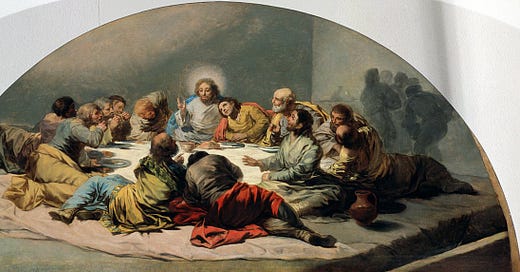


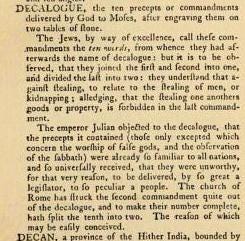
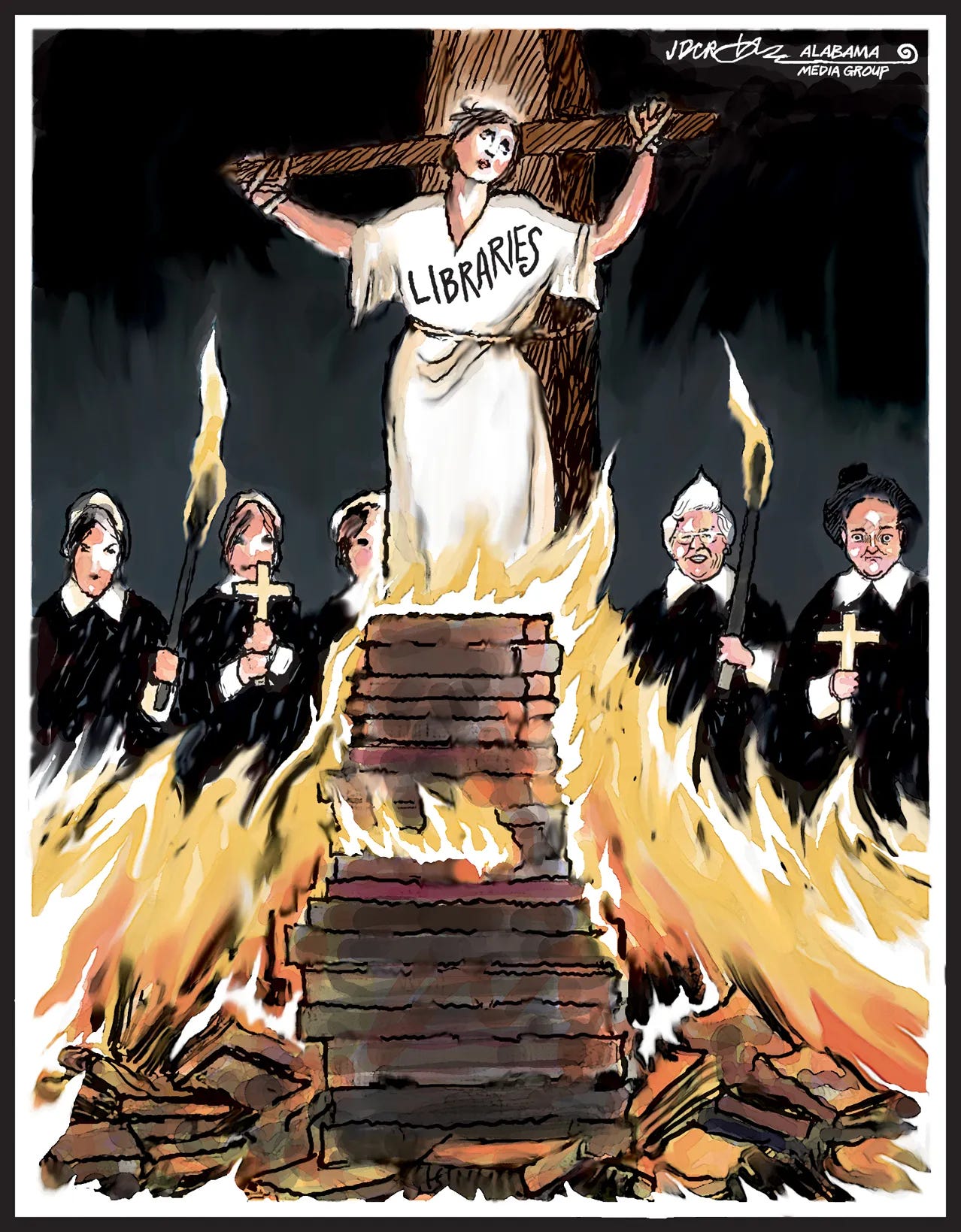
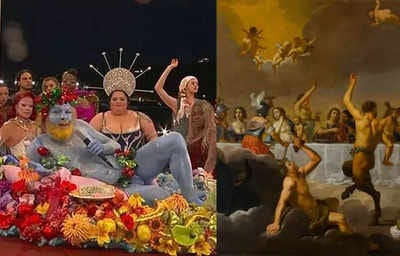
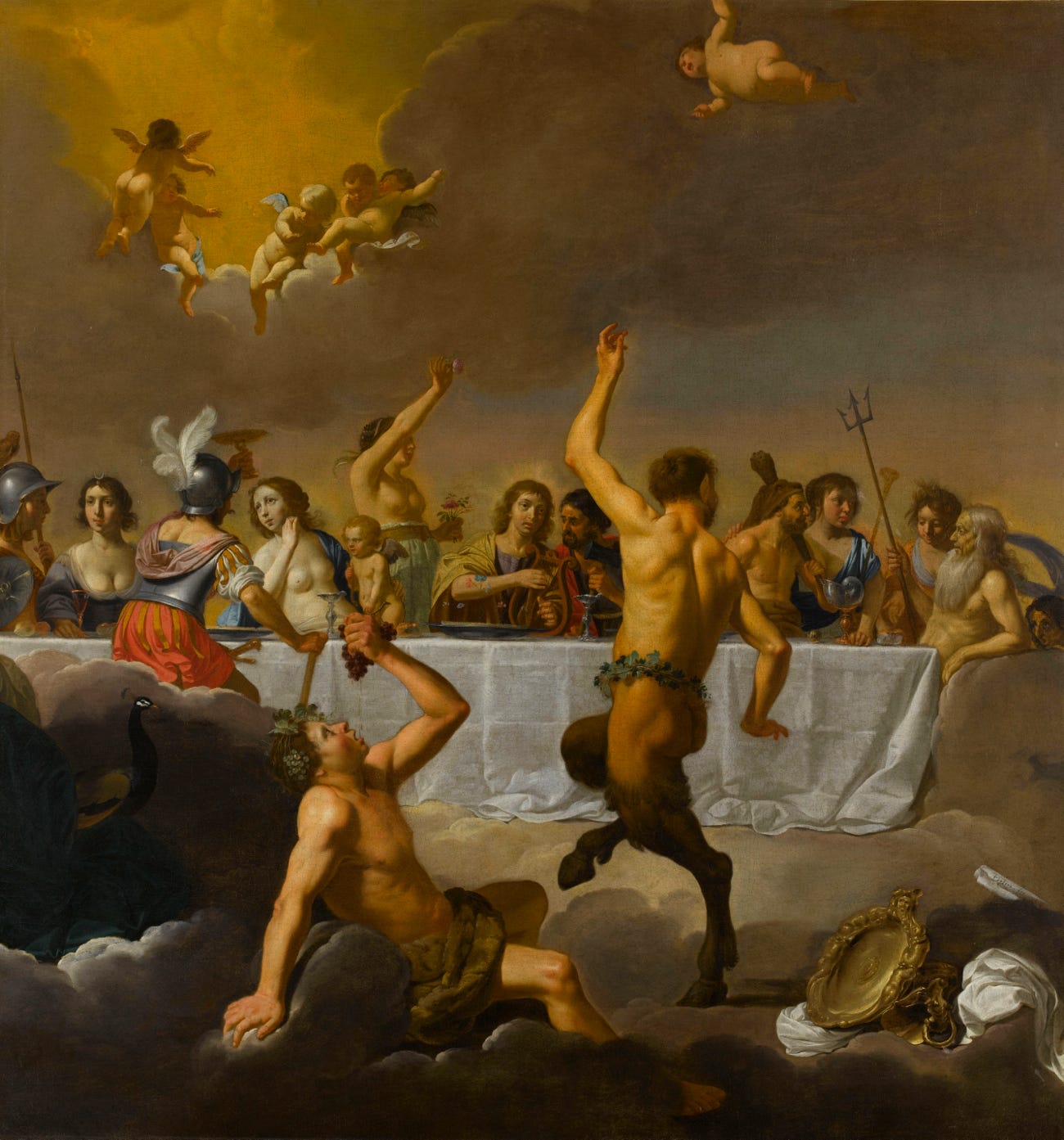




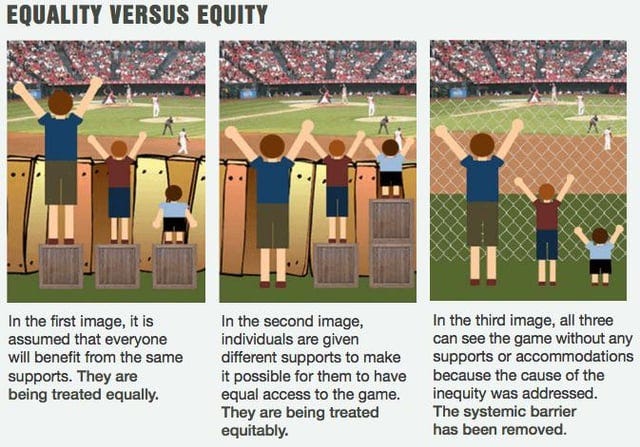
This made me laugh out loud many times. "the first thing you might notice is that it says “ten commandments” but then lists twelve. Or eleven, if you don’t count the author byline" was my first. There is a lot to think about, obviously, but I think the question I have by the end is the one you allude to: what is this doing to kids? I remember back when we were deciding if we should bring up our children (OK, YOU) Jewish, an old wise friend said she thought you should give a child a religion so they have something to rebel against. That was as good a reason/excuse as any for me to bring up my children in the religion I had been brought up in, loved, rebelled against, and then made my own in some hybrid/iconoclastic way. But I didn't have all this confusing/conflicting mishmash of input that kids have today and I wonder how kids will know what to love and rebel against. Maybe this isn't what you meant by this post, but it's what it left me thinking about. Thanks for writing it. And I always felt like parents should earn the honor, by the way.
> (Do not do this. I am not a lawyer and also killing is wrong.)
I see what you did there! Although I have this faint feeling that I haven’t spotted all of it…